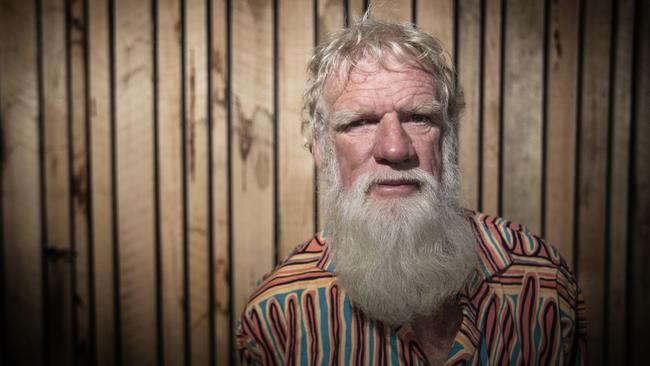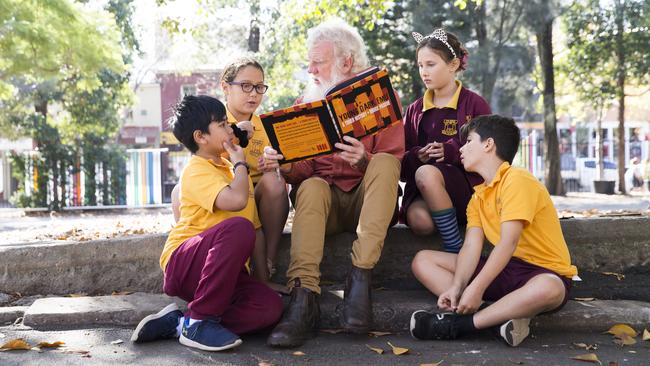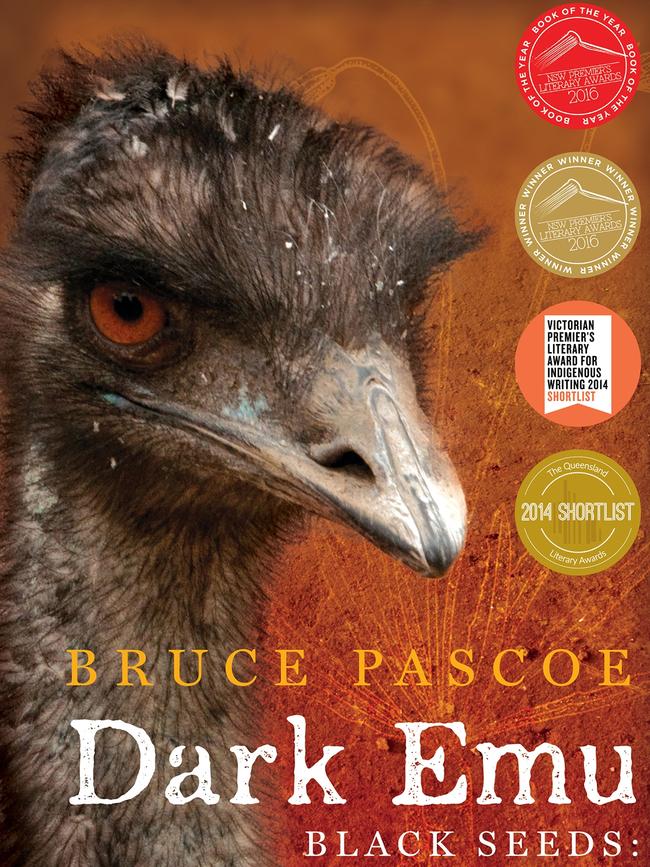Piers Akerman: Dark Emu debate proves ABC deserves scrutiny
Bruce Pasoe’s best-selling book Dark Emu – which was heavily promoted by the ABC – has been criticised by experts for inaccurately claiming that Aboriginals were farmers.
Opinion
Don't miss out on the headlines from Opinion. Followed categories will be added to My News.
Seven years after self-proclaimed Aboriginal and self-anointed historian Bruce Pascoe published his best-selling book Dark Emu the work has been utterly demolished by two outstanding academics.
Peter Sutton, the principal author of the latest work to demolish Pascoe’s humbug, Farmers or Hunter-Gatherers? The Dark Emu Debate (Melbourne University Press) is a most respected anthropologist and co-author Keryn Walshe, who wrote the final two of the book’s 13 chapters, is just as acclaimed in her area of field archaeology.
The authors smash Pascoe’s claims that Aboriginals were farmers and also challenge other points he made from his misuse of the term “fire stick farming” to describe horticulture to whether the Mabo lands right decision should stand.
Why it took seven years for credentialled academics to put Pascoe’s fables under the microscope needs further exploration but the manner in which the taxpayer-funded ABC swallowed his nonsense and spent thousands promoting his work and pushing to have obvious falsehoods embedded in the curricula across the nation is even more deserving of scrutiny by both federal education minister Alan Tudge and communications minister Paul Fletcher.
ABC Head of Education, Annabel Astbury, endorsed Pascoe’s nonsense recently saying: “We are so fortunate to have had the opportunity to interview Bruce Pascoe on Country, helping us understand the physical and written evidence of a people who, for thousands of years, had an organised, innovative and considered use of land that supported bountiful cultural economies…This collection is not just a resource for school students, it is a resource for all Australians.”
It’s unclear exactly what is Astbury’s expertise to pronounce on Pascoe’s bald claims and if she asked anyone with any actual knowledge for input.

As Sutton bluntly wrote “Pascoe’s book purports to be factual … however it is poorly researched. It distorts and exaggerates many old sources. It selects evidence to suit the author’s opinions., and it ignores large bodies of information that do not support the author’s opinions. It contains a large number of factual errors, a range of which we analyze here. Others we could not include for want of space.”
Bruce Chatwin’s acclaimed but inaccurate Songlines and Bill Gammage’s popular but flawed The Biggest Estate, How Aboriginals Made Australia, which Pascoe leant on in his book, are also criticised.
This is not the first time Pascoe’s work has been eviscerated. Two years ago, Peter O’Brien exposed the author in his critically excellent work Bitter Harvest: The Illusion of Aboriginal Agriculture in Bruce Pascoe’s Dark Emu (Quadrant Books), but as a retired military officer, he was not deemed sufficiently learned by the ABC to be taken seriously. Now, supported by Sutton and Walshe, he must be.


Pascoe’s denigration of the Old People’s way of life as “mere” hunters and gatherers, earns him Sutton’s thinly disguised contempt though the academic does acknowledge that the Dark Emu controversy may at least have triggered a debate.
This is a debate that the politically correct do not wish to have however.
Sutton and Walshe’s publishers, MUP, would not provide me with a review copy of their book and declined to make the authors available for an interview.
This seems a strange way to assist in publicising a book which I firmly believe should be included in every school reading list even as Pascoe’s works are removed or at the very least, marked fiction in capital letters.
As Sutton told me last year, he didn’t want his work to be written about by conservatives because he thought attention from the (handful) of conservatives privileged to put our views before the public might damage his reputation. So much for wishing to encourage enlightened debate.
Pascoe has received a plethora of awards including two NSW Premier’s Literary Awards (Book of the Year and the Indigenous Writers’ Prize 2016) and was shortlisted for two other prizes, the History Book Award in the Queensland Literary Awards (2014) and the Victorian Premier’s Award for Indigenous Writing (2014).
An attack on Pascoe’s credibility is not an attack on Aboriginals but he has become a sacred cow and nowhere more so than at the other big sacred cow, the ABC.




